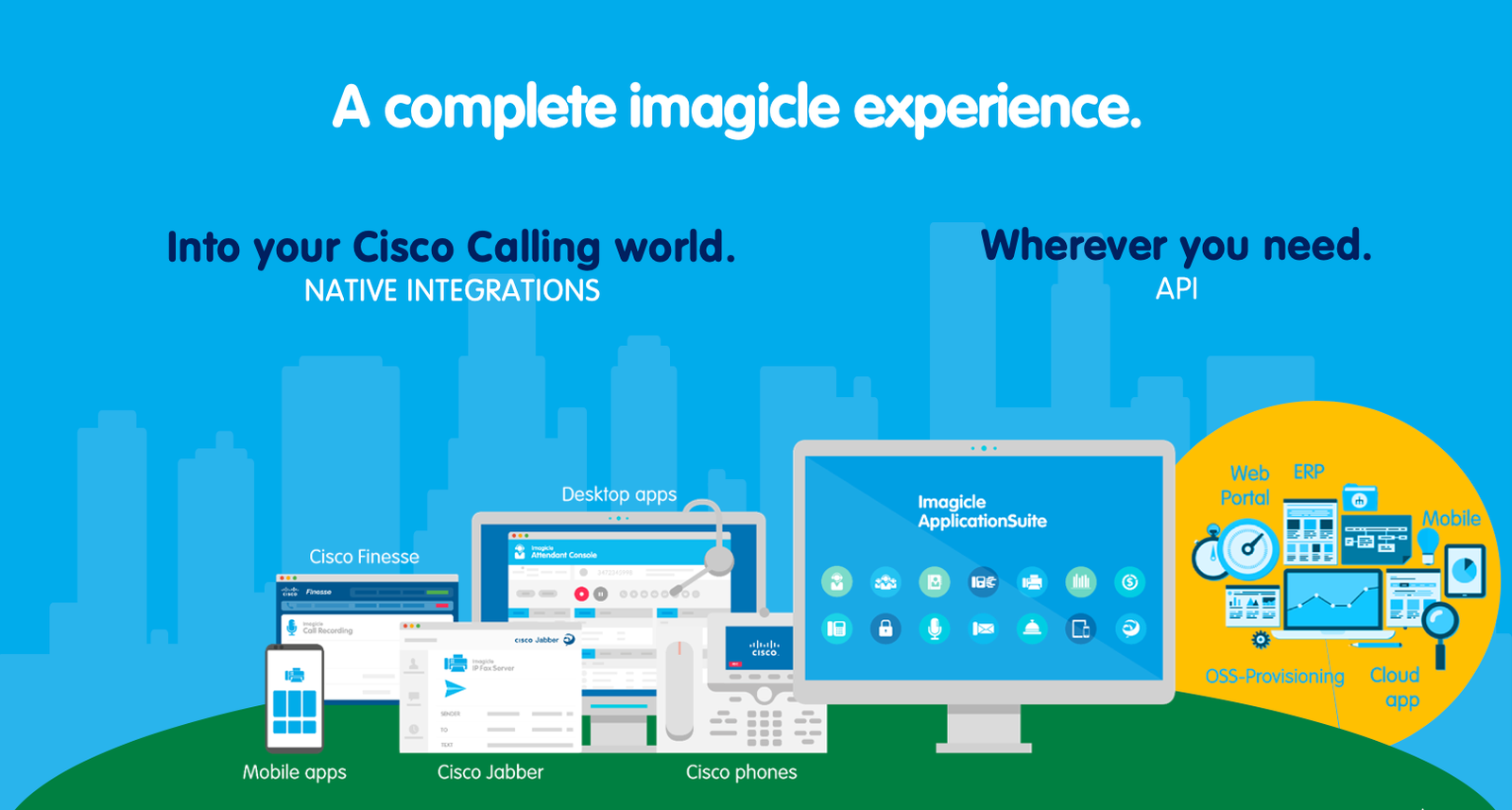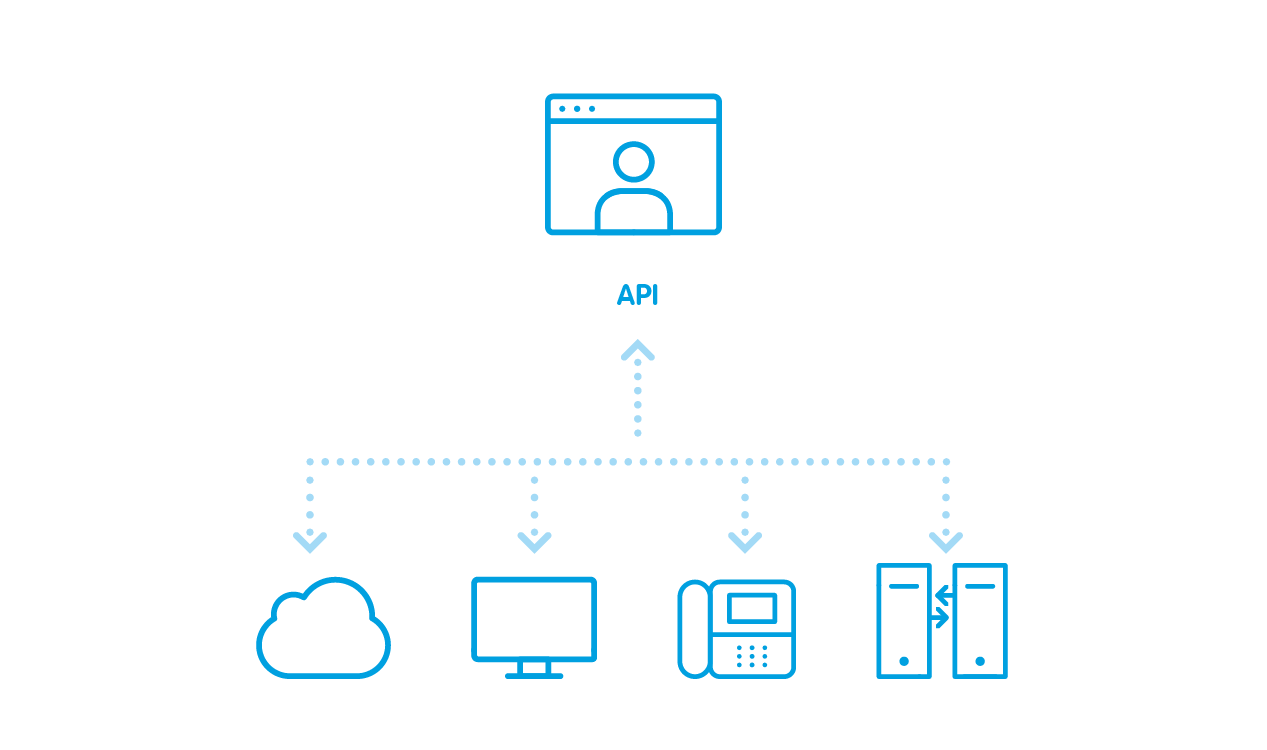 Marco Da Rios - 15 July, 2020 - 6 ’ read
Marco Da Rios - 15 July, 2020 - 6 ’ readLock/unlock corporate phones automatically with the brand-new Imagicle API.
Simplify your life: Applications Integration.

What is an API?

Not all APIs are made equal.
APIs in the Imagicle ApplicationSuite.
It is with these principles in mind that we have developed the APIs for our Imagicle apps. The Imagicle ApplicationSuite, in fact, offers a good share of interoperability, with a lot of public API functions an external system can use.
Here are a few examples:
- Users’ management: you can list or search users details, start synchronization with an Active Directory or LDAP system, or use the Pictures Repository feature;
- Queue Manager Enterprise: you can list, create, edit and delete queues, and manage their agents and supervisors;
- IVR module for QME: you can list, create, edit, delete, clone IVR services, and assign managers to them;
- Call Recording: you can list and download your past recordings and start, stop, pause or resume the recording of your active calls;
- Hotel Pack: you can set up your properties and their Property Management Systems (PMS)
- IP Fax Server: you can send a fax, or list and download sent and received faxes.
You can read a successful example of the usage of our APIs in this post about how the Imagicle and Kurmi software collaborated to provide a comprehensive solution for the provisioning and management of the UC environment of Service Providers and large enterprises.
… and starting from Summer 2020, our customers will be able to take advantage of the new API that will make another of the incredible Imagicle apps available to everyone!
The new Phone Lock API.
Conclusions.
Thanks for reading!
If you are interested in learning more about Imagicle APIs and how they can turn useful to your business, visit our knowledge base to see if there is an API that can fit your needs in terms of software integration.
If you enjoyed this article, feel free to check out some of these other articles related to the upcoming Summer Release 2020.
You might also be interested in…
-
Products BlogCisco and Imagicle elevating their partnership with Webex CallingCisco and Imagicle have partnered for over a decade. This launch elevates our partnership to new heights.
-
Products Blog15 Tips to Improve Customer Satisfaction in Call CentersLearn how to bring customer satisfaction to new hights by improving call center strategies.
-
Products BlogWeb chat: 5 tips to boost your customer support5 simple to dos that you can follow to empower your customer support through web chat.



0 Comments